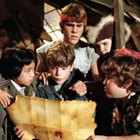Restrepo is a documentary following the experience of one U.S. military platoon stationed for one year in the Korengal Valley of Afghanistan – the most dangerous and deadly place for a soldier to be during the war.
The documentary consists of footage shot by two journalists, Sebastian Junger and Tim Hetherington, who accompanied the platoon for the duration of their stay, and one-on-one interviews conducted after their return home. Viewers are given little idea what is happening in the outside world at the time — the focus is solely upon the experience of the soldiers.
The story picks up as the men are preparing to construct a 15-man outpost in a strategically important part of the valley. after its completion, they decide to dub it “Restrepo,” after a beloved medic who had been killed in action.
Their lives are divided between frenzy and tedium — running for their weapons to stave off Taliban ambushes one moment, then sitting around in boredom the next. The filmmakers don’t hold back from presenting uncomfortable scenes, like the soldiers wading through the aftermath of their attack, walking past a dead girl and many more injured children held in the arms of their parents.
The footage is undoubtedly powerful. But it is presented with little context that would be meaningful for civilians. Any explanation of what is going on is expressed in military jargon and rooted in the mindset of the soldier, who is in so deep that his thoughts are impossible for the layman to understand.
But despite the film’s confounding nature, it still presents us with a viewpoint we never see truthfully on the nightly news or in Hollywood movies. we often only see the aftermath — men and women who come back home changed. Restrepo offers a glimpse of the catalyst of that transformation, casting light on the part of war we often neglect – the part with people. (Rated R)
























